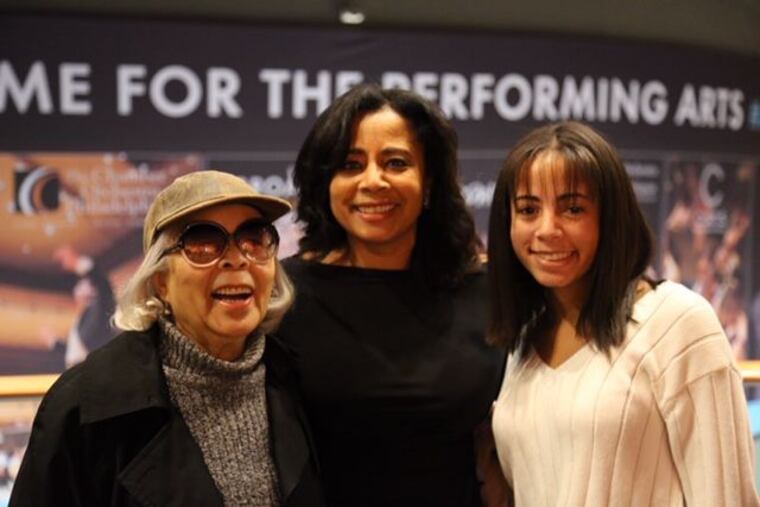Renee Chenault Fattah: Roe v. Wade decision makes me “furious”
I sometimes wonder how my life would be different if I had been unable to get an abortion when I learned I was pregnant a month before heading off to law school.

On Friday, I had just started a team meeting at Philadelphia Lawyers for Social Equity, where I am executive director, when I received a text from my 18-year-old daughter: “Roe is overturned.”
Although it was expected, at that moment, I was at a loss for words. And it has taken days to process a confluence of emotions.
It was a historic moment. Years from now, we’ll still remember where we were when we got the news that Roe v. Wade, and its 50 years of constitutional protection for women’s reproductive rights, were no more.
As a lawyer, I see the decision as the work of a dishonest, corruptly seated Supreme Court ignoring decades of settled law.
For me, as a Black woman, it evokes personal history.
I was 14 when Roe v. Wade was decided. And while my generation benefited from the ruling, we were often shamed into silence. Perhaps, if we had been more proactive and vocal, we would not be facing today’s reality — where our daughters do not have the rights their mothers and (even grandmothers) enjoyed.
I sometimes wonder how my life would be different if I had been unable to get an abortion when I learned I was pregnant a month before graduating from college and heading off to law school at the University of Pennsylvania. At that time, I was not ready to become a mother or a wife. And I knew I had the Constitution protecting my freedom to make that choice.
Now, I am furious that this constitutional right no longer exists.
As the leader of a legal and social justice organization that serves the interests of Black and brown communities, I believe we must now channel our rage and disillusionment into action.
My law firm was born out of a commitment to our communities. We view pardons and expungements through the lens of helping low-income communities lift themselves out of poverty. In recent years, the firm has framed criminal-record history as an issue of public health, which is defined as all those factors that impact people — from employment, to housing, to access to education, and more. Clearing a criminal record gives a person a shot at a better job and improved economic opportunity. The health of our communities depends on breaking the cycle of intergenerational poverty and inequality.
“We must now channel our rage and disillusionment into action.”
And that also means providing women, who are our community’s backbone, with control over their reproductive health.
Given the work we do and the people we serve, we are not surprised that the end of Roe falls disproportionately on the shoulders of Black and brown communities across the nation. It is a hard truth, but this nation’s legacy of inequality toward people of color is rooted in racism and tied to this nation’s history of slavery.
And while the impact will fall heaviest on the poor and people of color, all women are affected. The Dobbs decision thrust us back to the past, as we now talk in terms of Free States and Non-Free States. In Free States, women have the freedom to make decisions over their bodies; in Non-Free States, they don’t.
» READ MORE: Abortion is still legal in Pennsylvania — but it’s hanging by a thread | Expert Opinion
Of course, our path forward is through the ballot box. Even though Pennsylvania leads the nation in providing voting rights to those with criminal records, many justice-involved people may not be aware of their rights. Over the summer and into the fall, my firm will redouble our efforts to make sure that voting information is readily available. We will never tell people how to vote, only that they have the right to do so.
Philadelphia Lawyers for Social Equity is grateful to those corporations and businesses who are speaking out and making clear they will support services to their employees who need to travel to Free States for an abortion. And we look to the medical profession and its educational institutions to say, in the plainest terms, that the right to a safe abortion is at the heart of health care.
The forces who claimed victory in overturning Roe have been planning this for a long time. And they are not finished. Individually and collectively, we must challenge this decades-long push to roll back our fundamental freedoms of democracy, gender, and racial equity.
Renee Chenault Fattah is executive director of Philadelphia Lawyers for Social Equity. She was a television news anchor for 25 years.